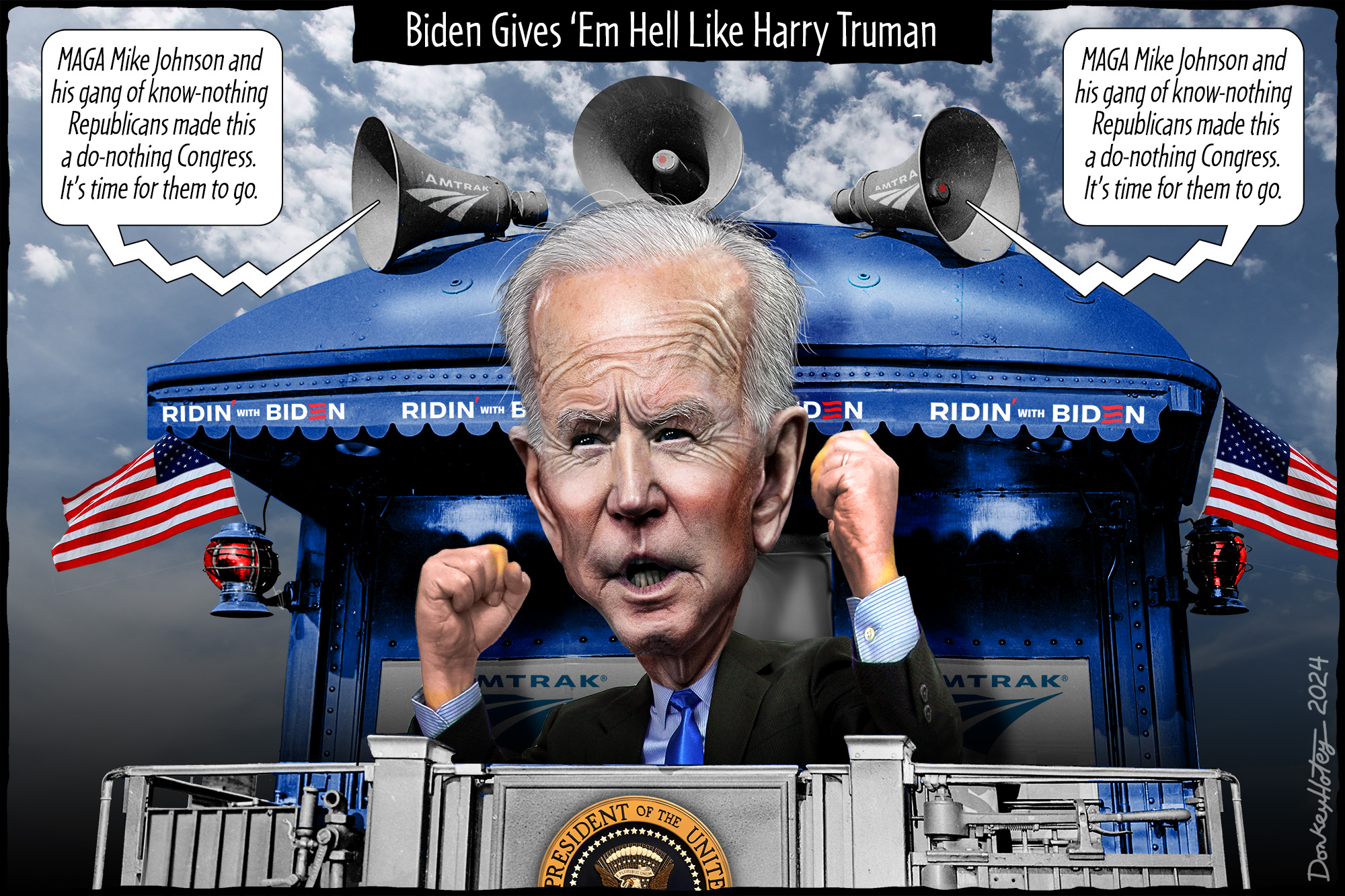Imagining Joe Biden’s Whistle-Stop Tour Against the Do-Nothing Congress
“Not since President Lincoln and the Civil War have freedom and democracy been under assault here at home as they are today.” — President Joe Biden
|
Listen To This Story
|
In his July 12, 1948, acceptance speech at the Democratic convention in Philadelphia, President Harry S. Truman told the convention, “I will win this election and make these Republicans like it.” Truman minced no words: “The reason is that the people know that the Democratic Party is the people’s party, and the Republican party is the party of special interest, and it always has been and always will be.” He even went on to call the Republicans the enemy.
Our current president is much more polite to his opponents, but he did take off the gloves in his State of the Union speech on March 7, 2024.
During his speech, President Joe Biden mentioned “my predecessor” a total of 13 times. He openly criticized Republicans in the House chamber, accusing them of acting as mindless servants of the former president. Their alleged sabotage included obstructing security aid to Ukraine and opposing a bipartisan border deal for political motives.
Biden also called out the GOP for trying to rewrite the history of January 6: “My predecessor and some of you here seek to bury the truth of January 6. I will not do that.”
Amtrak Joe might consider taking his message to the rails for a bit of fun and to occupy the media’s attention. Truman railed against the “Know Nothing, Do Nothing Congress” in Elizabeth, NJ, October 7, 1948. Biden could give that speech almost word for word today.
Here is a video explaining how Truman campaigned in 1948.
Here is an audio file of Truman explaining why he campaigned against the 80th Congress (1947-1949) as a Know-Nothing Congress.
While you’re here enjoying DonkeyHotey’s latest cartoon, please take a moment to read these articles on related topics:
- The Stakes for the Climate Couldn’t Be Higher in 2024 Elections
- Unmasking the Disinformation Playbook with Barbara McQuade
- Other DonkeyHotey cartoons
The cartoon above was created by DonkeyHotey for WhoWhatWhy from these images: Joe Biden caricature (DonkeyHotey / Flickr – CC BY 2.0 DEED), caboose (National Archives / Wikimedia), seal (ZericaRibica / Wikimedia – CC BY-SA 4.0 DEED), logo (Unknown author / Wikimedia), and flag (PublicDomainPictures / Pixabay).

